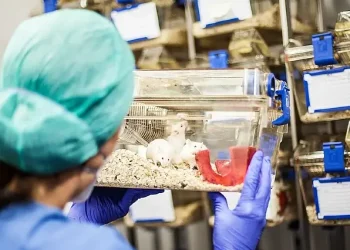Bird keepers and gamebird rearers in Great Britain face a heightened risk of avian influenza, prompting the government to enforce stricter biosecurity measures.
These include vehicle disinfection, feeding station management, and daily health checks to protect both wild and captive birds from outbreaks that could severely impact the UK poultry industry.
Understanding the New Biosecurity Measures
The UK government has updated its Avian Influenza Prevention Zone (AIPZ) regulations to address the increased threat of bird flu.
Gamebird keepers must now adhere to stringent biosecurity protocols, including daily vehicle disinfection and managing feeding stations effectively. These measures aim to prevent contamination from wild birds and reduce the risk of disease spread.
Practical Steps for Bird Keepers
- Disinfect vehicles daily to minimize disease transmission risks.
- Ensure one feeding station per 60 released birds for optimal management.
- Clean and cover feeding stations daily to prevent contamination by wild birds.
- Avoid feeding pheasants within 50 meters of water bodies frequented by wildfowl.
- Maintain a 500-meter distance between game bird feeding areas and other kept birds.
The Effects on Rural Communities
The avian influenza outbreak poses significant challenges for rural communities reliant on poultry farming and shooting industries.
Stricter biosecurity measures may increase operational costs for bird keepers, while restrictions on gamebird releases could affect shooting seasons. This situation underscores the need for effective disease management strategies to safeguard livelihoods in these sectors.
More About Avian Influenza
The current outbreak is part of a global pattern affecting countries like Taiwan, Canada, and Cambodia.
The UK’s proactive approach aligns with international efforts to manage avian influenza risks through transparent reporting and compliance with World Organisation for Animal Health standards.
Continued vigilance is essential to protect both domestic poultry production and international trade relations.
Expert Insights on Disease Management
UK Chief Veterinary Officer Christine Middlemiss emphasizes the importance of strong biosecurity as a defense against avian influenza outbreaks.
She urges all poultry keepers to take immediate action in strengthening their protective measures, highlighting that proactive steps are crucial in limiting further spread of the virus among both wild and captive bird populations.
Additional Reading
To Sum Up
The ongoing threat of avian influenza requires vigilant adherence to updated biosecurity measures by UK bird keepers. By implementing these protocols, they can help mitigate economic impacts while protecting both local wildlife and commercial interests.
Continued cooperation between government agencies and rural communities will be vital in managing this public health challenge effectively.
More of Todays Top Breaking Government News Stories!
Sources: UK Government, Department for Environment Food & Rural Affairs (Defra), and Animal & Plant Health Agency (APHA).
Prepared by Ivan Alexander Golden, Founder of THX News™, an independent news organization delivering timely insights from global official sources. Combines AI-analyzed research with human-edited accuracy and context.









